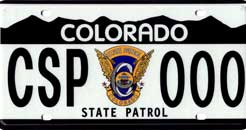









Navigating the Complexities of the Colorado DMV: A Comprehensive Overview
The Colorado DMV is not just a place to obtain a driver’s license or vehicle registration; it represents a vital intersection of public service, technology, and community engagement. This article delves into the various dimensions of the Colorado DMV, examining its services, recent innovations, challenges faced, and the public's perception.
Historical Context of the Colorado DMV
- Establishment and Evolution: The Colorado DMV was established in the early 20th century, evolving in response to the growing number of vehicles and the need for regulation.
- Legislative Changes: Over the decades, various laws have shaped the DMV’s functions, including the introduction of electronic systems and the focus on customer service improvements.
Services Offered by the Colorado DMV
- Driver Licenses and ID Cards:
- Issuance of various types of driver’s licenses, including learner’s permits and commercial licenses.
-
Real ID compliance, which enhances security measures for identification.
-
Vehicle Registration and Title Services:
- Options for registering new and used vehicles, along with title transfers.
-
Special registration services for unique vehicles and historical plates.
-
Road Tests and Safety Courses:
- Providing road tests for new drivers and offering safety course certifications, promoting safe driving practices.
Technological Innovations
- Online Services:
- The Colorado DMV has embraced technology with a suite of online services, including appointment scheduling, online renewals, and payment processing.
-
A mobile app has been launched, allowing residents to access DMV services directly from their smartphones.
-
Digital Transformation Initiatives:
- Implementation of an automated appointment system aimed at reducing wait times and improving customer experience.
- Use of data analytics to streamline operations and enhance service delivery.
Challenges Facing the Colorado DMV
- Long Wait Times and Staffing Issues:
- Despite technological advancements, many customers report long wait times, particularly during peak seasons.
-
Staffing shortages have been exacerbated by budget constraints and the COVID-19 pandemic.
-
Public Perception and Customer Service:
- While some residents appreciate the DMV's efforts toward modernization, others express frustration over inconsistent service experiences.
- Ongoing feedback mechanisms are in place, but effectively addressing concerns remains a challenge.
Community Engagement and Feedback
- Public Forums and Surveys:
- The Colorado DMV holds public forums to gather resident feedback and improve services, showing a commitment to community engagement.
-
Regular surveys help gauge public satisfaction and identify areas needing improvement.
-
Partnerships with Local Organizations:
- Collaborations with community organizations aim to educate residents about DMV services and increase awareness of new initiatives.
- Outreach programs have been established to assist underserved communities in accessing DMV services.
Future Directions for the Colorado DMV
- Continued Digital Expansion:
- Plans to further expand online services and mobile app capabilities to enhance user experience.
-
Integration of more advanced technologies, such as artificial intelligence, to improve service efficiency.
-
Focus on Sustainability:
- Initiatives aimed at reducing the carbon footprint of DMV operations, including paperless options and energy-efficient facilities.
- Encouragement of eco-friendly vehicle registrations and incentives for electric vehicle owners.
Conclusion: A Work in Progress
The Colorado DMV stands at a pivotal moment in its evolution, balancing the demands of modern technology with the essential public service role it provides. As it continues to adapt to the needs of its constituents, the DMV's commitment to improving service delivery and community engagement will be crucial in shaping a more efficient and user-friendly experience for all Coloradans.
In summary, while the Colorado DMV faces challenges, its ongoing efforts to innovate and engage with the community highlight its dedication to serving the public effectively. Understanding these complexities can help residents navigate the often daunting world of motor vehicle services with greater ease and confidence.
